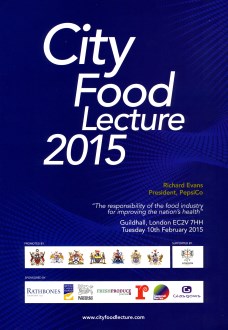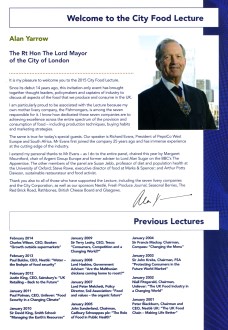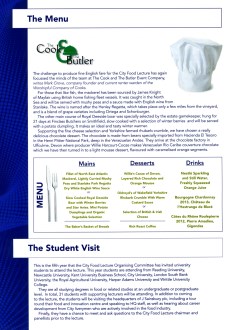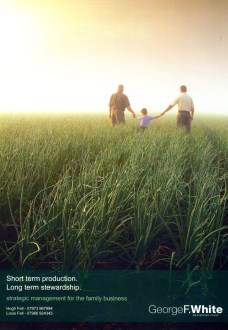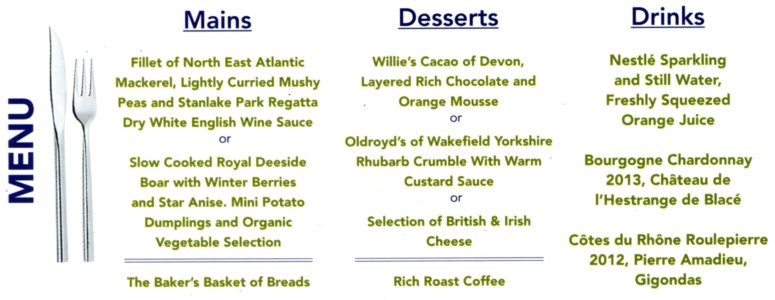
Tel: 020 7620 1818 email: cookandbutler@btconnect.com
City Livery Food Group
City Food Lecture 2022
Decmber 6th 2021
Bakers' Hall, London
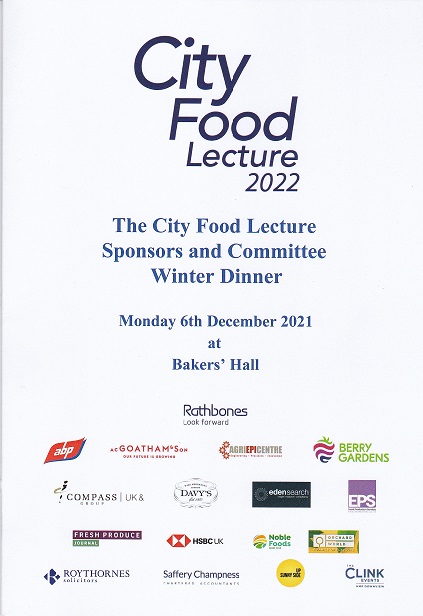
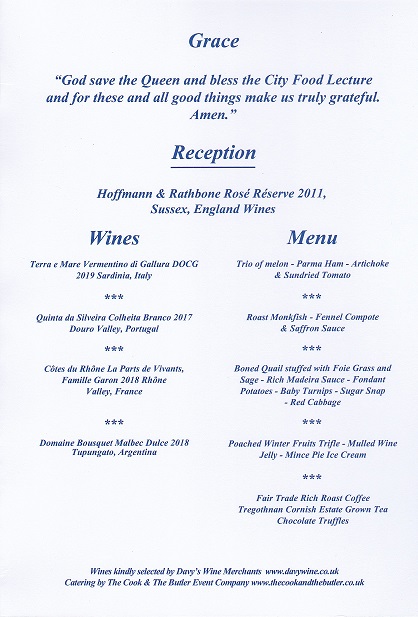
![]()
City Food Lecture
July 2021, St. Dunstan Church Garden &
Bakers' Hall, London
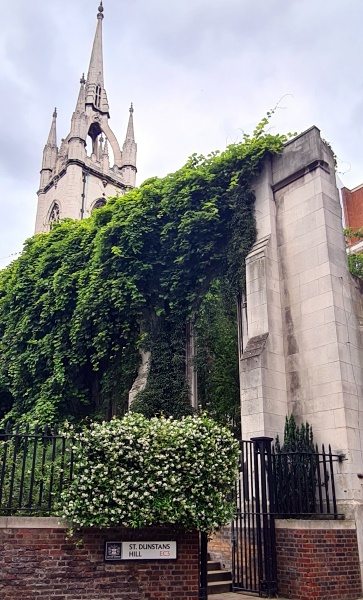
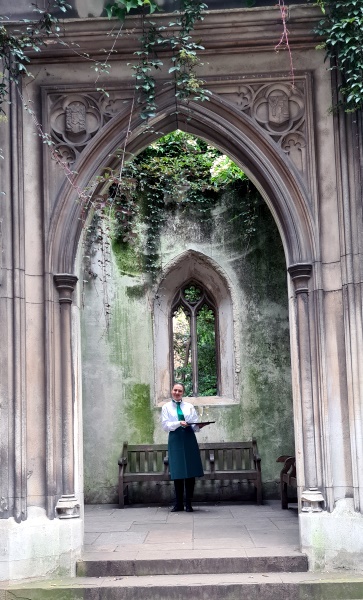
Reception at
St. Dunstan in the East Church Garden
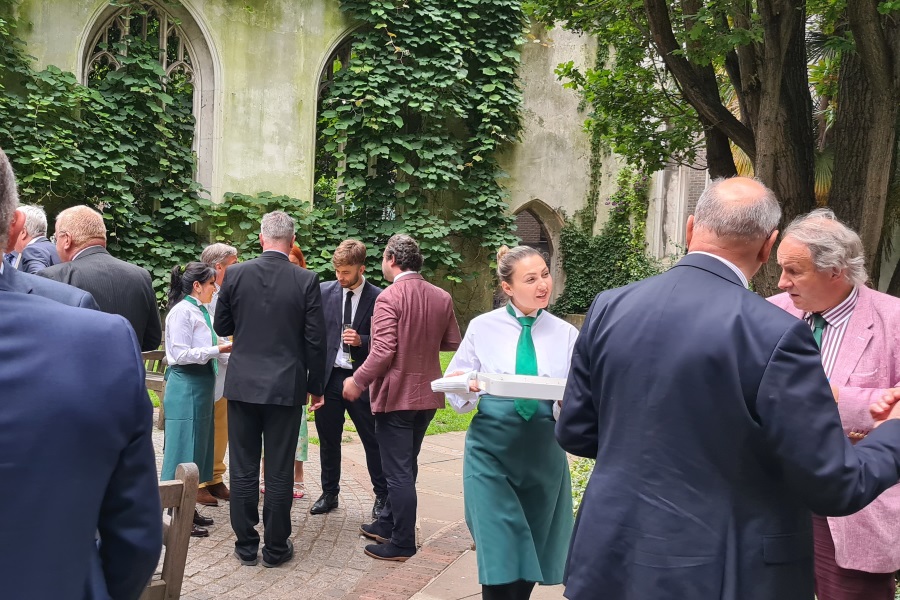
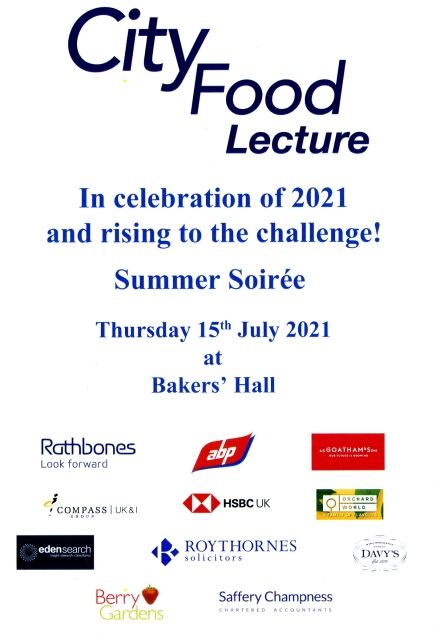
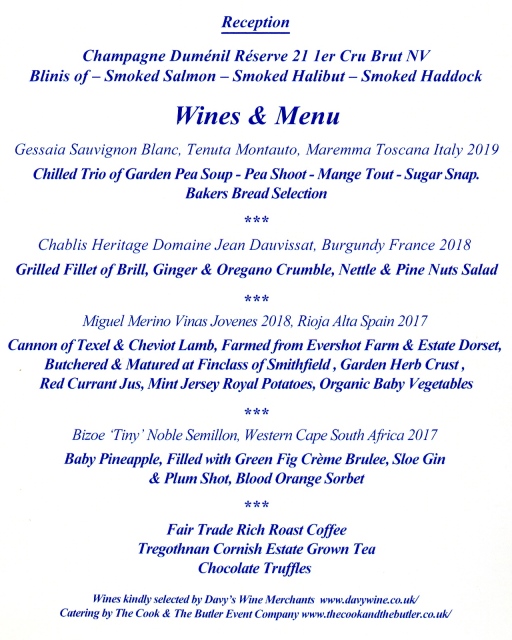
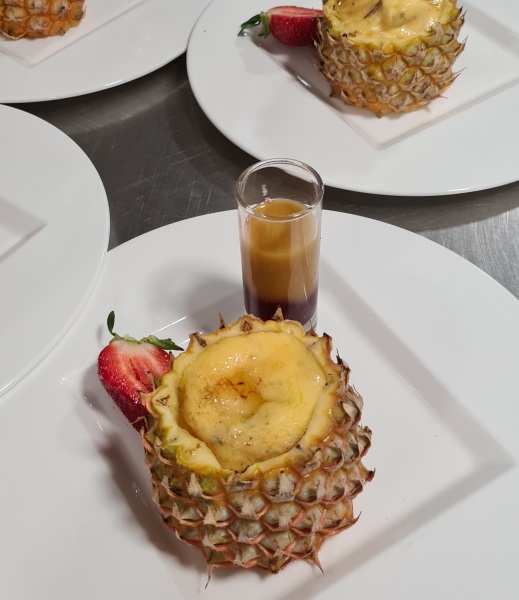
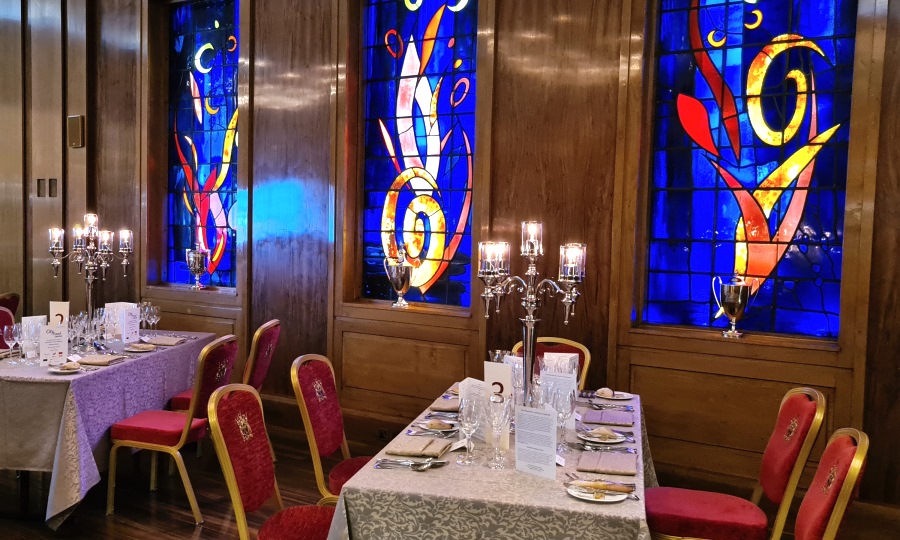
The Church of St. Dunstan
The Church of St Dunstan was originally built around 1100 and is a Grade 1 listed building. A new south aisle was added in 1391 and was repaired in 1631. It was severely damaged in 1666 by the Great Fire of London. The Church was again severely damaged in the Blitz of 1941. Wren's tower and steeple survived the ombing. During the re-organisation of the Anglican Church after World War II it was decided not to rebuild St Dunstan's. In 1967 the City of London decided to turn the remains into a public garden, which opened in 1970.
City Food Lecture
February 2015, Guildhall, City of London
www.cityfoodlecture.com
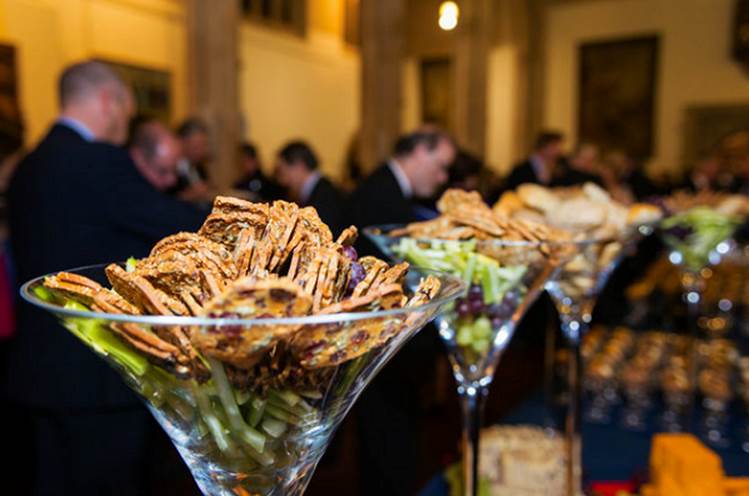
The City Food Lecture is an annual, invitation-only fixture in the City of London and food industry calendars. Held at the prestigious Guildhall, the event is organised by the seven city livery companies whose roots are in the food industry – namely the Worshipful Companies of Bakers, Butchers, Cooks, Farmers, Fishmongers, Fruiterers and Poulters.
Welcome to the City Food Lecture
Alan Yarrow, The Rt Hon The Lord Mayor of the City of London
It is my pleasure to welcome you to the 2015 City Food
Lecture.
Since its debut 14 years ago, this invitation-only event has brought
together thought leaders, policymakers and captains of industry to discuss
all aspects of the food that we produce and consume in the UK.
I am particularly proud to be associated with the Lecture because my own
mother livery company, the Fishmongers, is among the seven responsible for
it. I know how dedicated those seven companies are to achieving excellence
across the entire spectrum of the provision and consumption of food —
including production techniques, buying habits and marketing strategies.
The same is true for today's special guests. Our speaker is Richard Evans,
President of PepsiCo West Europe and South Africa. Mr Evans first joined the
company 25 years ago and has immense experience at the cutting edge of the
industry.
I extend my personal thanks to Mr Evans — as I do to the entire panel,
chaired this year by Margaret Mountford, chair of Argent Group Europe and
former adviser to Lord Alan Sugar on the BBC's The Apprentice. The other
members of the panel are Susan Jebb, professor of diet and population health
at the University of Oxford; Steve Rowe, executive director of food at Marks
& Spencer; and Arthur Potts Dawson, sustainable restaurateur and food
activist.
Thank you also to all of those who have supported the Lecture, including the
seven livery companies and the City Corporation, as well as our sponsors
Nestle, Fresh Produce Journal, Seasonal Berries, The Red Brick Road,
Rathbones, British Cheese Board and Glasgows.
The Menu
The challenge to produce fine
English fare for the City Food Lecture has again focussed the minds of the
team at The Cook and The Butler Event Company, writes Mark Grove,
company founder and current renter warden of the Worshipful Company of
Cooks.
For those that like fish, the mackerel has been sourced by James Knight of
Mayfair using British home fishing fleet vessels. It was caught in the North
Sea and will be served with mushy peas and a sauce made with English wine
from Stanlake. The wine is named after the Henley Regatta, which takes place
only a few miles from the vineyard, and is a blend of grape varieties
including Ortega and Schonburger.
The other main course of Royal Deeside boar was specially selected by the
estate gamekeeper, hung for 21 days at Finclass Butchers on Smithfield, slow
cooked with a selection of winter berries and will be served with a potato
dumpling. It makes an ideal and tasty winter warmer.
Supporting the fine cheese selection and Yorkshire farmed rhubarb. crumble,
we have chosen a really delicious chocolate dessert. The chocolate is made
from beans specially imported from Hacienda El Tesoro in the Henri Pittier
National Park, deep in the Venezuelan Andes. They arrive at the chocolate
factory in Uffculme, Devon where producer Willie Harcourt-Cooze makes
Venezuelan Rio Caribe couverture chocolate which we have then turned in to a
light mousse dessert, flavoured with caramelised orange segments.

Inaugural Lunch
November 2009, Bakers' Hall, London
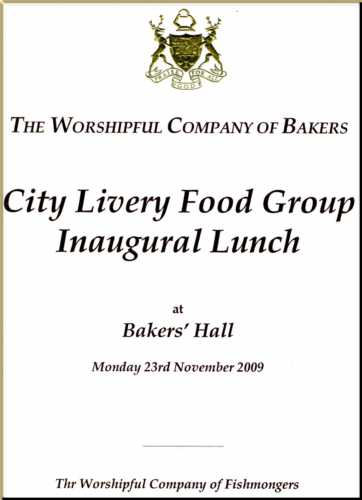
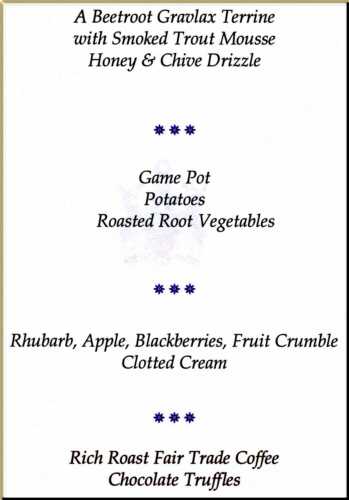
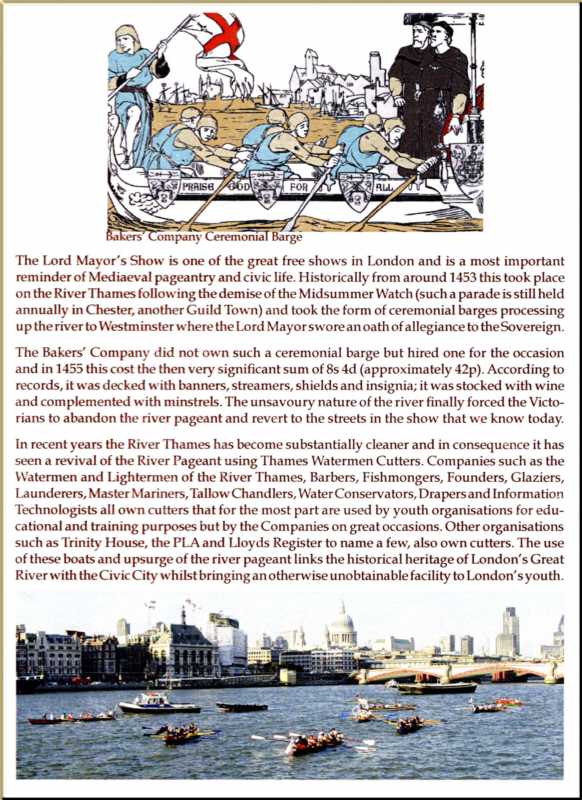
![]()
